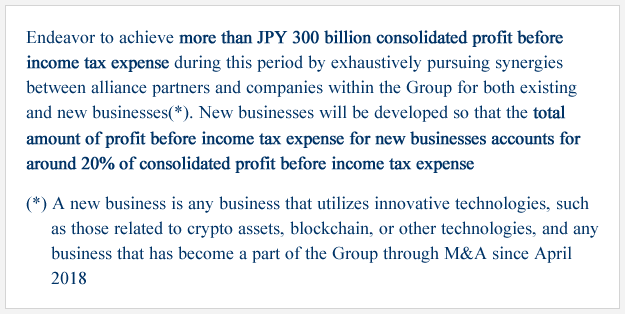
The human resource consulting industry evolved from management consulting. It was established to help with the tasks and decisions related to human resource management. A typical role for a human resource consultant is to provide HR strategy and analytics. One is to provide analytics and HR strategy. The second is to offer learning and development. These roles are essential to an organization's ability to succeed. These consultants could specialize in one of these areas depending on the company’s needs.
Human capital consulting
Human capital consultancy could be a good career choice for someone who loves working with people. Consultants work with organizations to improve the way they do business by developing strategies, training programs, and performance management systems. A solid understanding of psychology, human behavior, and communication skills are required for this job. You also need to be able to think critically and create creative solutions.
In order to provide clients with an edge in the workplace, human resource consultants must be up-to-date on the latest developments in this field. As businesses become more global and competitive, the need for an agile workforce is becoming more critical than ever. Many companies are searching for new ways in which to increase productivity or efficiency. This may include changing their work models.

HR consulting
An industry called HR consulting has emerged from management consulting. It focuses primarily on the tasks and decisions related to human resources. The roles of an HR consultant are usually twofold. The first is strategic planning. The second is operational. These consultants offer guidance on managing people, processes, technology.
Companies can use HR consultants to increase their efficiency and implement new policies and procedures. Companies value their objective perspective and often hire them to address a specific issue. Their tasks can include assessing a company's human resource deficit and creating policy and implementing it. Others include implementing technology and driving organisational change. Although multinational companies often hire HR consultancies, they are also used by smaller and more modest companies.
HR analytics
An HR analytics consultant can help you get the most out of your data. This type can help you make informed choices and provide insight into employee behavior. It can also be used to identify and eliminate unconscious biases, so that all candidates have equal opportunities. These insights are based on data and can be used to improve hiring processes, reduce time wasted in the hiring process, and identify trends in recruitment outcomes.
HR analytics consulting is an emerging field. This field is seeing rapid growth thanks to AI and automation. It's also becoming more important as industries merge and assets become one. As these changes occur, the human capital landscape is changing. As a result, the issues of aging as well as immigration are becoming increasingly important.

Learning & development
A Learning & developmental consultancy HR can help develop the talent in your workforce. L&D professionals can work with your business leaders, executive leadership teams and other stakeholders to identify and implement effective training programs. L&D programs that align with an organisation's goals are flexible, measurable, and adaptable.
Typically, learning and development consultants have a bachelor's degree in a field related to learning and development. Employers prefer consultants with a master’s degree.
FAQ
How do I choose a good consultant?
Three main factors should be considered:
-
Experience - How experienced is this consultant? Is she a beginner? Intermediate? Advanced? Expert? Do her qualifications and knowledge show on her resume?
-
Education - What did he/she learn in school? Did he/she continue to take relevant courses after graduation? Can we see evidence of that learning in the way s/he writes?
-
Personality – Do we like this person/person? Would we like him/her to work with us?
-
These questions are used to determine if the candidate is right for us. If there are no clear answers, then it might be worth an initial interview to learn more about the candidate.
Who hires consultants?
Many organizations employ consultants to assist in projects. These consultants can be found in small and large businesses as well as government agencies, universities, educational institutions, non-profits, and education institutions.
These consultants may work directly for the organization, or freelance. In either case, the hiring process varies depending on the size and complexity of the project.
When hiring consultants, you will probably go through several rounds of interviews before choosing the person you think would be best suited for the position.
What is a consultant and what are their responsibilities?
Consultants are people who provide services to others. This is more than a job title. You help others achieve their goals. Helping others to understand their options, and then helping them make the best decisions.
Consultants have the ability to solve any problems or challenges that may arise from projects. They also provide advice and guidance on how to implement those solutions.
Consulting should be able answer any questions related to technology, finance, law and management.
What qualifications do you require to become a Consultant?
Not only is it important to have an MBA but you should also have business consulting experience. A minimum of two years' experience in consulting, training and/or advising a major company is necessary.
You must have worked closely with senior management teams on strategy development projects. This would require you to be comfortable with presenting ideas and getting buy in from clients.
You will also need to pass a professional qualification test such as the Chartered Management Institute Certified Management Consultant certification (CMC).
Statistics
- "From there, I told them my rates were going up 25%, this is the new hourly rate, and every single one of them said 'done, fine.' (nerdwallet.com)
- According to statistics from the ONS, the UK has around 300,000 consultants, of which around 63,000 professionals work as management consultants. (consultancy.uk)
- WHY choose me: Why your ideal client should choose you (ex: 10 years of experience and 6-week program has helped over 20 clients boost their sales by an average of 33% in 6 months). (consultingsuccess.com)
- Over 62% of consultants were dissatisfied with their former jobs before starting their consulting business. (consultingsuccess.com)
- My 10 years of experience and 6-step program have helped over 20 clients boost their sales by an average of 33% in 6 months. (consultingsuccess.com)
External Links
How To
How To Find The Best Consultant?
First, ask yourself what kind of consultant you are looking for. You should know exactly what your expectations are before you start searching for someone. A list of what you expect from a consultant is helpful. These could include professional expertise, technical skills and project management abilities, communication skills, availability, and other things. Once you've listed out these requirements, then you may want to consider asking some friends or colleagues who they would recommend. Ask them about their experiences with consultants and compare their recommendations to yours. Research online if you don’t already have recommendations. You can post reviews on your previous work experiences on many websites like LinkedIn, Facebook and Angie's List. You can use the comments and ratings left by others to help you find potential candidates. Once you have narrowed down your list, reach out to potential candidates and set up an interview. In the interview, discuss your needs and ask them for their suggestions on how you can achieve them. It doesn't matter whether they were recommended to you or not; just ensure that they understand your business objectives and can demonstrate how they can help you reach those goals.